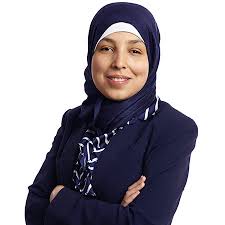
By Judi Neal, founder of Edgewalkers.
My mother was an Edgewalker although she would have told you she was “just a housewife.” She was always interested in people who were not the same as her. We moved to Hawaii when I was eight years old and she immediately began learning about the Hawaiian culture. She loved making friends with people from diverse backgrounds. She signed me up for ukulele and hula lessons, both of which I loved. Embracing diversity is a core part of the Hawaiian culture, where no one race, religion, or other forms of identity were dominant. It’s called the Spirit of Aloha.
Thanksgiving dinners in Hawaii were particularly memorable. My mother would put out the best dishes and would invite someone to join us who might otherwise be alone on Thanksgiving. She invited people from different cultures and almost always invited someone from the Navy base in Pearl Harbor, where my father worked. My favorite experience is the year when she invited a Navy sailor and his hearing-impaired parents. It was the first time I had seen American sign language used, and I was entranced. I was also deeply touched by the love between son and parents, and the way they could so comfortably communicate with each other in a manner that was completely new to me.
Edgewalkers are curious about others and are likely to be the ones in a room that look for someone who is “different” from the others there and go over to talk to them. They have the sense that there could be something interesting to learn from this person. And it is in their connecting nature (Connecting is one of the Edgewalker skills), that makes them want to help that person feel a part of things.
Cindy Wigglesworth has identified 21 skills of spiritual intelligence and has written a wonderful book about measuring and developing these skills. One of those skills is called “Complexity of Inner Thought” and includes the ability to be comfortable with holding the tension of conflicting ideas, and to be comfortable with paradox and mystery. As Edgewalkers, we see and value differences in others while at the same time can connect to our shared humanity and our underlying oneness.
In these days of polarization, and what Otto Sharmer calls the “Post-Truth, Post-Democracy, and Post-Humanity” world, my hero of bridge-building through valuing differences and connecting to our shared humanity is the journalist Van Jones. He has an incredible way of reaching out to others who see the world differently so we can understand others at a deeper level. His book, Beyond the Messy Truth, offers eight practical approaches to positive change that both the political right and the left can embrace as an example of embracing differences and finding commonality.
One of my newest Edgewalker heroes is Sara Minkara. She describes herself as an advocate, entrepreneur and pioneer. Sara is all of that and so much more. She is a young, blind Muslim, first-generation American who is a champion for diversity and who helps empower others to unlock their fullest potential. She founded and is CEO of a nonprofit called Empowerment Through Integration. Sara walks between many worlds and builds bridges with heart and connection.
Please join us at our next Edgewalker Café on March 11th, at 11am Eastern when Sara and Judi will explore the connections between Edgewalking and diversity. Sign up for our newsletter at the bottom of this page to receive the Zoom link. All are welcome!
Here are some questions to ponder:
What is your relationship to diversity?
In what ways do you build bridges?
What’s one way you could get a little bit out of your comfort zone regarding diversity?
